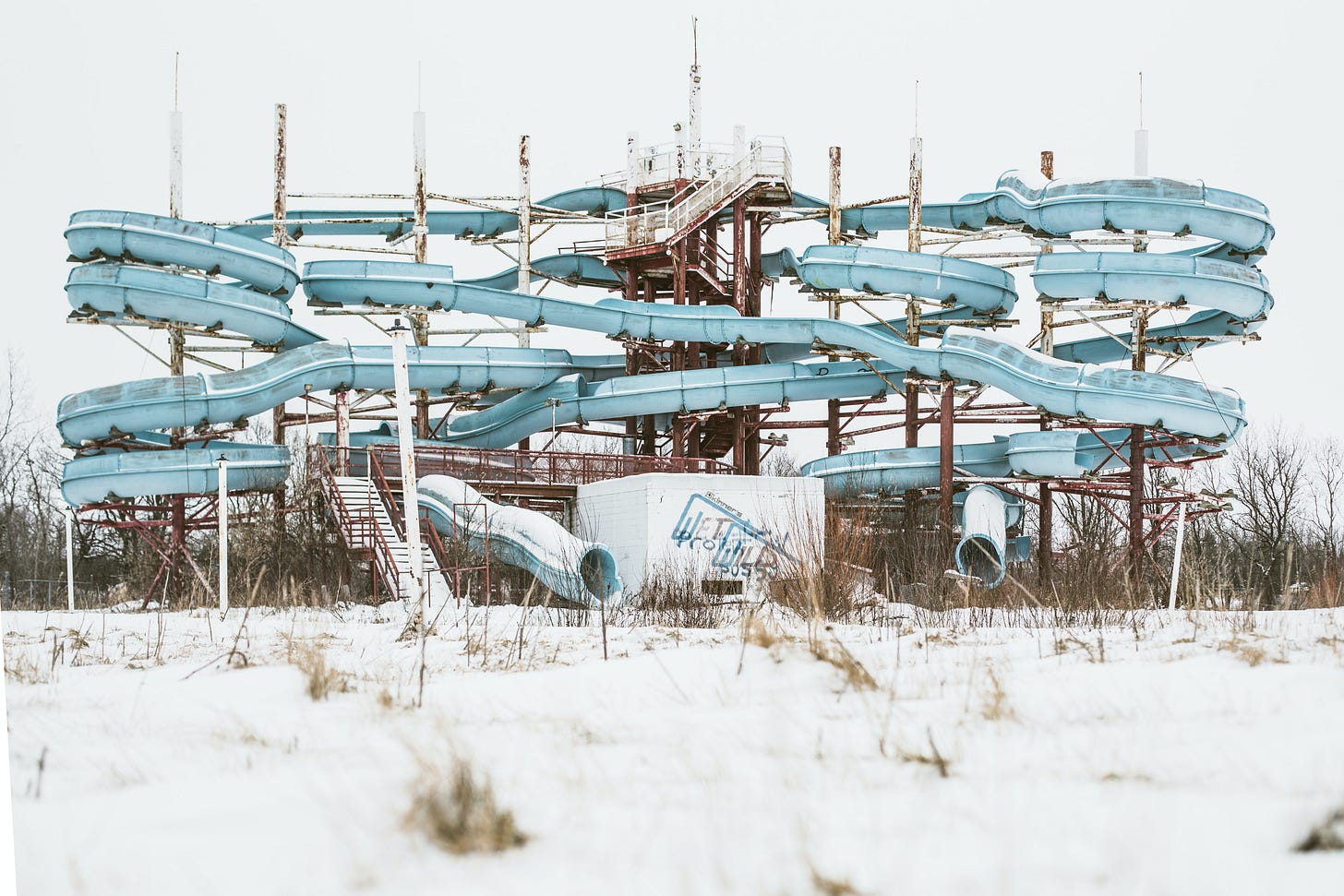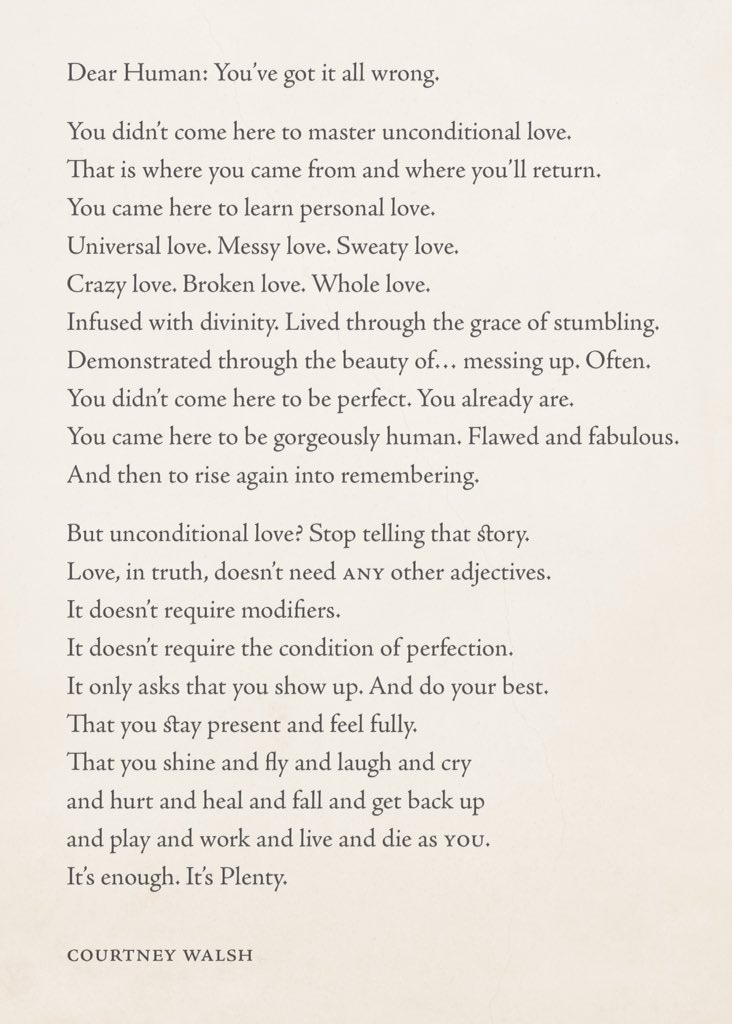When I think about the end of the world, I remember the movie Don’t Look Up, and how, when the comet was just minutes from ending all life on Earth, the people who’d been trying to stop it just kept eating their dinner, kept reminiscing about what they loved about being alive with each other, in the splintered here and now.
It’s like Brian Doyle’s magnificent essay “Leap,” in which he writes, about the two people who leaped from the south tower hand in hand on 9/11:
I try to whisper prayers for the sudden dead and the harrowed families of the dead and the screaming souls of the murderers but I keep coming back to his hand and her hand nestled in each other with such extraordinary ordinary succinct ancient naked stunning perfect simple ferocious love.
Their hands reaching and joining are the most powerful prayer I can imagine, the most eloquent, the most graceful. It is everything that we are capable of against horror and loss and death. It is what makes me believe that we are not craven fools and charlatans to believe in God, to believe that human beings have greatness and holiness within them like seeds that open only under great fires, to believe that some unimaginable essence of who we are persists past the dissolution of what we were, to believe against such evil hourly evidence that love is why we are here.
When I think about love, the thing I remember most about love—that is, when I truly stop to consider what love actually is, and how to do it, because love is something we do, not something we feel, love is a verb, not a noun, love is an action, a decision, a willful forward movement—is Courtney Walsh’s poem, “Dear Human”:
When I think about what it means to be enough, what it means to be plenty, I think about sitting with my foster grandson Z (who also has Covid) this afternoon, helping him put together his floor puzzle of the solar system, and how he pointed at Earth and said, “That’s Mars!”
And I said, “Oh, this red one, that’s Mars, Z. And this one here, this beautiful blue and green one? That’s Earth. That’s where we live. Earth is our home.”
Z pondered, then said with great solemnity, “My house is on Earth!” He pointed to the planet that he, with great effort, had made whole by fitting together pieces of cardboard, one slow experiment at a time. “And your house is on Earth, too, Nana,” he said, brown eyes shining. “Our houses are on Earth together. Yours and mine.”
“That’s right,” I said. “Together on Earth. Isn’t it a beautiful planet?” And I didn’t expect the tears that came with those words. It sounds so trite, crying over a floor puzzle.
But cry I did.
Because I love him so much, and love is why we are here, and if my writing, my art, and even this imperfect newsletter can contribute just one thing, I want it to be more love.
That’s it.
I wish that for all of us.
And I thank you for being in my universe. It would be nothing without you.
Love,
Jeannine
“A human being is a part of the whole called by us universe, a part limited in time and space. He experiences himself, his thoughts and feeling as something separated from the rest, a kind of optical delusion of his consciousness. This delusion is a kind of prison for us, restricting us to our personal desires and to affection for a few persons nearest to us. Our task must be to free ourselves from this prison by widening our circle of compassion to embrace all living creatures and the whole of nature in its beauty.”
―Albert Einstein
If you or someone you know is walking the long path back to yourself after a painful childhood, then my memoir, The Part That Burns, might help light your way.








I often think about the time it takes light to reach us from the sun, and wonder what we would do if it suddenly stopped shining and the world would end after those 8 minutes. If the last rays of light were on their way to us, we wouldn't have much time for anything but to take a breath and reflect on our lives. In my imagination it's always a peaceful moment.
Stunned speechless, humbled and crying with goosebumps.